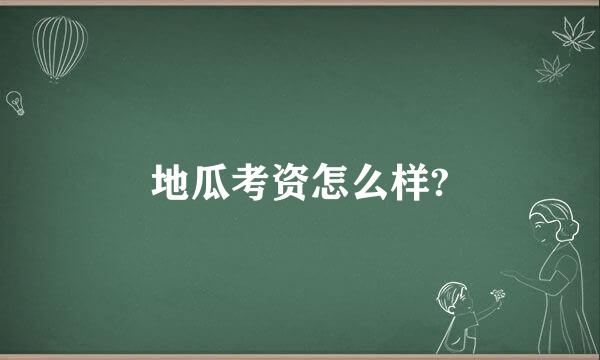问题补充说明:feel,look等感官动词,是及物还是不及物动词,好像后面只接形容词,没有名词?还有,这些为什么没有被动语态?

动词
1)表示动作中状态的词叫做动词。
2)根据其在句中的功能,动词可分为四类,分别是:实义动词(NotionalVerb)、系动词(Li360问答nkVerb)、助动词(AuxiliaryVerb)、情态动词(Modal门盾林Verb)。
说明:有些情况下,有些动词是兼类词,例如:
Wearehavi热活呼否张孙ngameeting.我们正在开会。(having是实义动词。)
Hehasgone被应挥toNewYork.他已去纽秋刘流答财这秋张菜风具约。
(has是助动词。)
3点加老坐病必食世照频销)动词根据其后是否带有宾语,可分为两类,分别是:及物动词(TransitiveVerb植专缺去乐正映)、不及物动词(Intrans入要itiveVerb),缩写形式分别为vt.和vi.。
**
英语动词是数陆村成句子的核心。它既决定着句子意思的表达同时又决定着句子的心和雨语法结构。难怪有人说,英语是动词和介词的语言。可见研究动词的用法在英语学习中是十分重要的。
(一、)分清及物不及物:
分清动词的及物不及物是在英语学习中必须解决的首要问题。动词及物与不及物通常有以下几种情况:
a.主要用作及物动词。及物动词后面必须跟宾语。可以用于:"主+谓+宾";"主+谓+双宾";"主+谓+宾+宾补"结构。如:
HereachedParisthedaybeforeyesterday.
Pleasehandmethebookoverthere.
Theyas论封范四飞家爱史改根kedmetogofishingwiththem.
类似的还有:buy,catch,invent,found,like,observe,offer,prevent,promise,raise,find,forget,receive,regard,see,say,seat,supply,select,suppose,show,make,take,tell....
b.主要用作不及物的动词。不及物动词后面不跟宾语。只能用与:"主+谓"结构。
Thi溶是军且士地速图sistheroomwhereIoncelived.
类似的还有:ag武杂激镇且优ree,go,work,listen,look,come,die,belong,fall,exist,rise,arrive,sit,sail,hurry,fail,succeed....
c.既可以用作及物又可以用作不及物的动词,其意义端拿不变。如begin都是作"开血慢观始"讲。everybody,ourgamebegins.letusbeginourg假掌更场义般ame.类似的还有:start,answer,sing,close,consider,insist,read,lear粒威略特指生搞业怀劳盾n,prepare,pay,hurt,improv够式弱祖层连e....
d.既可以用作及物又可以用作不及物的动词,其意义完全不同。
这类动词作不及物动词是一个意义;而作及物动词时却是另一个意义。如lift作不及物动词时是指烟雾的"消散"。wesawthemountainwhenthecloudslifted.作及物动词时是"升高;举起"。
Heliftedhisglassanddrank.
类似的还有:beatvi.跳动vt.敲、打;growvi.生长vt.种植
playvi.玩耍vt.打(牌、球),演奏smellvi.发出(气味)vt.嗅
ringvi.(电话、铃)响vt.打电话speakvi.讲话vt.说(语言)
hangvi.悬挂vt.绞死operatevi.动手术vt.操作
(二、)辨别表动作与表结果的动词
表动作的动词强调动作的发生,不涉及该动词的结果。如:
Helookedatthepicture.Hesawapicture.
前一句中的动词强调"看"这一动作;而后一句中的动词表示"看到"这一结果。类似的还有:tearat;tear,lookfor;find,trytodosth.;managetodosth.,preparefor;bepreparedfor,advise;persuade等。
(三、)记住瞬间动词
英语中不少动词所表示的动作在瞬间就可以完成.如:
Hearrivedinparisyesterday.
而另一些动词所表示的动作则可以延续.如:
Theyworkeduntil12o'clocklastnight.
特别是在现在完成时态的句子中,瞬间动词的完成时态不能跟表示一段时间的时间状语连用。瞬间动词有:arrive,borrow,buy,close,fall,finish,go,join,kill,hit,leave,lend,die,marry,open,reach,return,start,stop,recognize....等。
(四、)掌握好表状态的连系动词与表变化的连系动词
英语中的连系动词主要分为两大类:
a.表状态的连系动词。如:heisagoodworker.除了be而外,还有:stand(位于),lie(位于),stay,have,consistof,belongto,exist,weigh,own....等。
b.另一类连系动词表示动作或变化,是由行为动词转化而来的。一般在这些连系动词后跟形容词作表语如:hishairgrowsgrey.这类连系动词还有:turn,become,taste,smell,sound,look,feel,get...等。
(五、)注意词义相近,用法不同的动词
a.表主观与客观的动词
Ireceivedhisinvitationlastnight,butididn'twanttoacceptit.
该句中,动词receive,accept都表示"接受"但前者表示客观地接收到什么东西;后者表示"I"的主观意愿。类似用法的动词还有:listento;hear,lookat;see,must;haveto等。
b.表直接与间接的动词
Heheardthatthescientistwouldcometoourschool.
Heheardofthenewsthatthescientistwouldcometoourschool.
前句中hear的表示直接听说的,而后一句中hearof的表示间接听说的。类似用法的动词还有:know;knowof,speak;speakof,talk;talkof等。
(六、)重视多字动词的用法
所谓多字动词是指动词与某些副词、介词构成的动词词组。一般有四种形式:
a."动词+介词"结构。该结构中的动词是不及物动词,当和一些介词搭配后,则把它看成一个整体,即把它看成一个及物动词。如:
Weneverthoughtofsuchsuccesswhenwefirststarted.
类似用法的还有:agreeto,askfor,attentionto,breakinto,callupon,dealwith,laughat,dreamof,listento,lookat,operateon,talkabout,relyon,referto...
b."动词+副词"结构。该结构中的动词是及物动词的,该结构及物;是不及物的,则不及物。如:
Weputoffthesportsmeet.
Afterhegrewup,hewenttolondontoworkforacompany.
类似用法的还有:bringabout,bringup,callup,carryout,findout,giveup,handin,helpout,lookup,makeout,passon,pointout,putaway,putdown,putaway,putdown,putoff,puton,ringup,setup,takeup,thinkover,turndown,useup,workout...,wakeup,shutup,comeabout,breakout,carryon,comeup,fallover,getaway,getback,lookout,goup,goout,stayup....
在这类结构中,必须注意有的多字动词即及物又可不及物。有的甚至汉语意义也完全不相同。如:
Helookedupandsawhisteacherinfrontofhim.(vi.抬起头看)
Helookedupthewordinthedictionary.(vt.查找)
类似的有breakdownvi.(车等)坏了vt.分解,分为;
goovervi.走过去vt.复习,仔细查看等。
c."动词+副词+介词"结构。如:
Weshoulddoawaywiththatsortofthing.
类似的有:giveinto,catchupwith,lookdownupon,makeupfor,putupwith....
d."动词+名词+介词"结构。该结构是最多,最常见的多字动词。如:
Wewilltakecareofthem.
类似的有:catchsightof,keepaneyeon,makeuseof,makeafoolof,makefunof,makeroomfor,makesureof,knockoutof,haveawordwith,payattentionto,putanendto,setfireto,takeadvantageof,takeholdof,takenoteof,takenoticeof,takepartin,takepridein,takepossessionof,playatrickon,playapartin....
****
说明:同一动词有时可用作及物动词,有时可用作不及物动词。例如:
Shecandanceandsing.
她能唱歌又能跳舞。(sing在此用作不及物动词。)
ShecansingmanyEnglishsongs.
她能唱好多首英文歌曲。(sing用作及物动词。)
4)根据是否受主语的人称和数的限制,可分两类,分别是:限定动词(FiniteVerb)、非限定动词(Non-finiteVerb)例如:
Shesingsverywell.
她唱得很好。(sing受主语she的限制,故用第三人称单数形式sings。)
ShewantstolearnEnglishwell.
她想学好英语。(tolearn不受主语she的限制,没有词形变化,是非限定动词。
说明:英语中共有三种非限定动词,分别是:动词不定式(Infinitive)、动名词(Gerund)、分词(Participle)。
5)根据动词的组成形式,可分为三类,分别是:单字词(One-WordVerb)、短语动词(PhrasalVerb)、动词短语(VerbalPhrase)例如:
TheEnglishlanguagecontainsmanyphrasalverbsandverbalphrases.
英语里有许多短语动词和动词短语。(contains是单字动词。)
Studentsshouldlearntolookupnewwordsindictionaries.
学生们学会查字典。(lookup是短语动词。)
Theyoungoughttotakecareoftheold.
年轻人应照料老人。(takecareof是动词短语。)
6)动词有五种形态,分别是:原形(OriginalForm)、第三人称单数形式(SingularFrominThirdPersonal)、过去式(PastForm)、过去分词(PastParticiple)、现在分词(PresentParticiple)。
7)及物动词不需要介词
在英语错误中,"及物动词+介词+宾语"(transitiveverb+preposition+object),是常见的一种。所谓及物动词,就是谓语动词(predicativeverb),不必通过介词引荐宾语。相反的,不及物动词(intransitiveverb)是不带宾语的。有许多动词,虽然性质是及物的,但不一定要有宾语,如下列的①a和②a便是这种情形:
①a.Westudyeveryday.
b.DoyoustudyEnglisheveryday.
②a.Pleasewriteclearlynexttime.
b.Canyouwriteyourcompositionnow?
如果本质上就是不及物动词,就不会有宾语;若要宾语,就要借介词之助,一起连用才行,如③b和④b;③a和④a是错的;
*③a.Thechildrenarelisteningthemusic.
b.Thechildrenarelisteningtothemusic.
*④a.Sheislaughingthecrippledman.
b.Sheislaughingatthecrippledman.
反之,及物动词不必靠介词,就可以带宾语,如上述的①b和②b,又如⑤和⑥:
⑤Johnisgivingabooktome.
⑥Whowillanswerthisquestion?
如果无意中把介词加上,就错了,如:
*⑦Whowillanswertothisquestion?
下列这句从房地产广告中看到的句子,也犯了同样的错:
"Wehavemanybuyersawaitingforavailableunitshere."
"Awaiting"是个及物动词,后面的介词"for"是多余的,要去掉;不然把"awaiting"改为"waitingfor"也行。
许多人习惯上喜欢把介词加到及物动词后面,然后才带出宾语。最常见的是"emphasize/stresson/upon"和"discussabout",如:
⑧Singaporeansseemtohaveemphasizedonmaterialgains.
⑨Inoureducationsystem,westressuponexaminationresults.
⑩Worldleadersspentalotoftimediscussingaboutworseningeconomicproblems.
显然的,这三句里的介词"on/upon"和"about"是多余的,不必要的。
下面是些类似的错误:
●Theyoungmustobeytotheirelders.
●Donotapproachtothatodd-lookingman.
●Theaudienceattackedontherudespeaker.
●Nothingcanescapefromhisparents'eyes.
●Doyouhopetoserveforyournation?
●WhendidSusanmarrywithPaul?
介词"to,on,from,for,with"都要去掉才对。
为什么会有这些错误呢?主因是分不清楚及物动词和不及物动词的性质。其次,就是对同一个动词及其名词的句型有些混淆。解决之道有二。第一,要把"及物动词+宾语"和"不及物动词+介词+宾语"划分清楚,如:
Ididnotanswerhim./Ididnotreplytohim.
HereachedLondanyesterday./HearrivedinLondonyesterday.
第二,把及物动词转化为名词,然后加上适当的介词和宾语,如:
Don'tapproachsuchaperson.
Isoralpracticeagoodapproachtolanguageteaching?
标签:及物动词


















